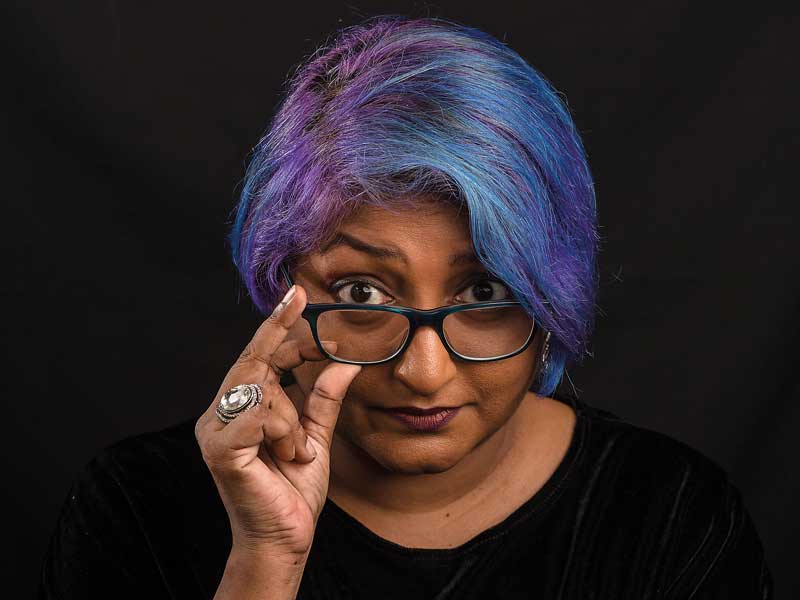
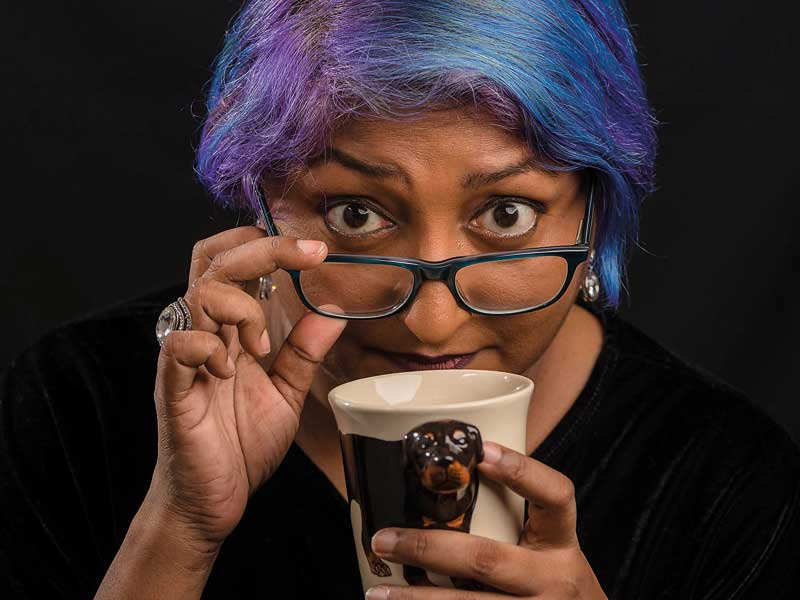
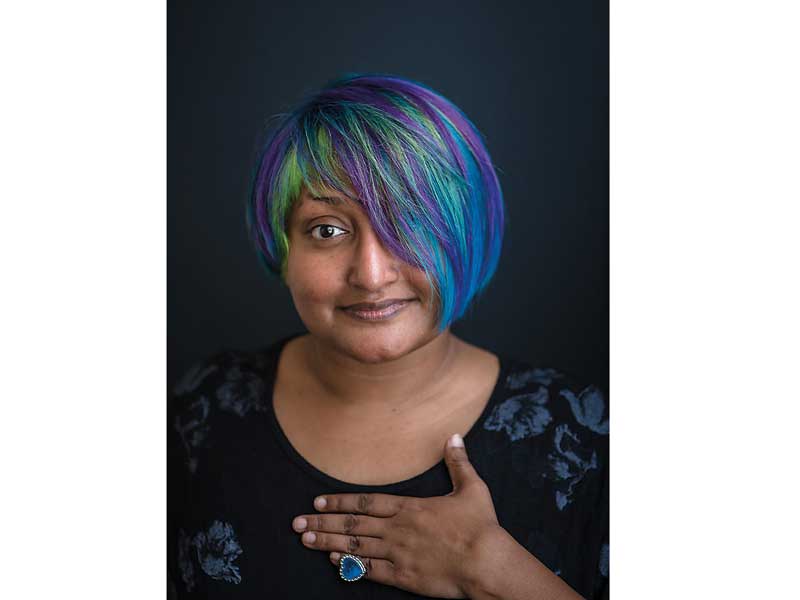
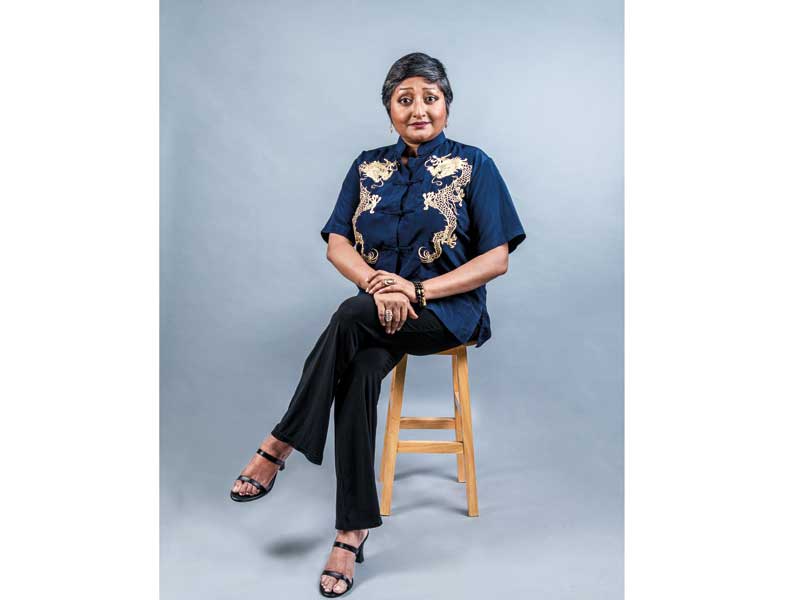
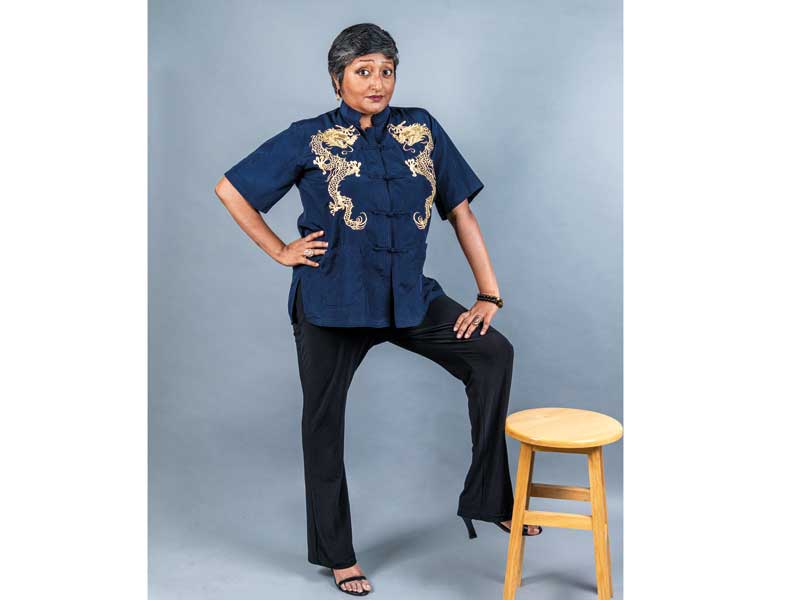
Childhood sexual abuse survivor Kumudini David explains the importance of speaking of her experience in order to empower other survivors
Words: Tina Edward Gunawardhana
Photographs: SiyathGovin Plus
Raising her voice and baring her soul, childhood sex abuse survivor Kumudini David is considered to be the flagbearer for other survivors of similar abuse. Kumudini’s immense bravery in talking opening about the abuse she underwent as a child has empowered numerous others to speak out and get help in dealing with emotions and aiding the healing process. A mother herself Kumudini’s testimony will help you understand the importance of a multitude of factors in dealing with survivors of child abuse and the kinks in the legal process which prevent many more survivors from reporting their stories to the law enforcement agencies. A role model for women across Sri Lanka, Kumudini’s story will help you understand a topic we consider as ‘dirty’ and try to brush under the carpet when in actual fact should be addressed and spoken about aloud so that others are empowered to speak out.
You are a survivor of child sex abuse. Can you describe your journey?
I was used as a sexual object from the age of 3 to 8. I was suicidal from the age of 9 to 14. At 14, I experienced a divine intervention that helped me realise I was not alone and that God was listening to me. I started to make an effort to re-join the human race after that. It’s taken me a lifetime to face what happened to me and the resulting abnormal behaviour I portrayed. First, I studied “normal people” to try and mimic them. After decades of trying, I realised I’ll never be normal. In my mid 30’s I decided to embrace and celebrate my abnormal self. That was when I started advocating to stop child abuse. I started by talking about what
I went through.
At that time, I was considered a pariah and weird. I may still be considered thus by some but I’m ok with that as I love myself now. Many tried to tell me that I should worry about what people said but by then I’ve realised that there was no such thing as “normal”. Society’s definition of normal is very ephemeral and has no substance most of the time. In fact, trying to be normal is a good way to become schizophrenic, no offense intended to people who actually suffer from the disorder.
Now, at 43, seeing the upsurge of awareness and discussion about child abuse around me, it gives me a sense of accomplishment that even in a small way I contributed to saving children from going through the agony I did.
Although we don’t wish to admit it, child sex abuse is rampant in Sri Lanka. Can you tell us what the current statistics are?
Child sexual abuse has been happening since probably the beginning of mankind. Treating children as sexual objects has been practiced by the ancient Romans, Greeks, Babylonians, Indians, Chinese…etc., and Sri Lankans. Children would have been sexually violated in every war or revolution that happened across history. It’s ridiculous to assume that child abuse is a recent phenomenon. It’s just that we, society, have been VERY good at pretending that it doesn’t happen around us.
The current official statistics, which were 5000 cases reported in the first half of 2021, are completely off the mark because only the reported cases are taken into consideration. Most cases of child abuse go unreported. My estimation is that the reported cases are around 0.1% of the actual number.
I conducted 2 surveys online last year, 2021, that asked 512 Sri Lankan respondents if they had been sexually abused, raped, if they’ve sexually abused anyone and if they’ve raped anyone.
47% of the respondents had been sexually abused before the age of 12. Meaning 1 in 2 of the respondents had been sexually abused as a pre-pubescent child. The global rate is 1 in 4 children. Our rate is double the amount. Further, 84% of the respondents had been sexually abused at some point in their lives. Yes! It is very scary. However, considering the surveyed respondents were all over 18 years of age I’m hoping the current statistic may be less, albeit not by much, as there’s more awareness of child abuse and how it happens now than there was 10 years ago when I started advocating. This is my sincere hope.
When I spoke of these results on Facebook there were quite a few academic scholars who said these numbers don’t mean anything as the study wasn’t “properly” conducted. But, it’s still 512 people talking about what they experienced in life and it’s just rude, to say the least, to dismiss what they’re saying because my survey wasn’t a “proper” scholarly prevalence survey.
Here’s a thought. Let’s do a “proper” prevalence survey that asks the right questions to understand the actual scope of the problem we have in Sri Lanka. After all, how do we productively address a problem if we don’t know the actual scope of it?
